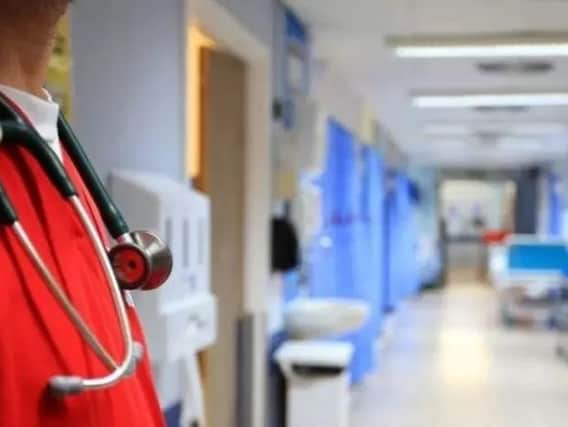'Why creating Airbnb for NHS patients is a sickening idea'


If anyone in this house so much as suggests that they might be feeling a little poorly and in need of a day off school, I subject them to a series of stringent checks.
Put simply, if they can walk and talk, they’re out of the door. And if I do conclude that either of my children – or indeed, my partner – is actually genuinely ill, they are required to stay in bed with no mobile phone, laptop or television remote until I deem that they have rested sufficiently to aid recovery.
Advertisement
Hide AdAdvertisement
Hide AdAs for food, drinks and other comforts. I am happy to provide all of the above, but at set intervals and unless in dire emergency, never on demand – or heaven forbid – at the tinkle of a bell.
Despite all of the above, I am actually quite a compassionate person.
If someone is genuinely ill or recovering from surgery, I’m the first to pop round for a chat or run errands. I do it for my parents all the time and never begrudge a moment.
Advertisement
Hide AdAdvertisement
Hide AdHowever, there’s a difference between doing it out of the kindness of your heart and doing it for money. A company in Essex called CareRooms is reported to be planning a pilot scheme which would see homeowners earning £50 a night – or up to around £1,000 a month – putting up patients who are recuperating from a hospital stay. It’s thought that this would include those who have had operations and surgery for minor medical problems such as knee replacements.
All that “hosts” would have to offer in return for their 50 quid is a bedroom with a private bathroom and three microwave meals a day. Presumably, they would also be required to take these meals to their house guest on a tray, unless there are plans to install complicated rig and pulley systems for patients unable to get out of bed. No mention is made of bed baths, administration of medicine or admission of visitors.
Although the NHS trust concerned, in Southend, has said that it has no intention to support the plan “at this time”, the suggestion is now out in the open. It proves that our once-proud
National Health Service is so strapped for cash (and therefore beds) that is prepared to contract out the care of vulnerable patients into the most private sector of all: other people’s homes.
Advertisement
Hide AdAdvertisement
Hide AdPatient safety is my main concern. I don’t wish to cast aspirations on the kind people of Southend, but can you just imagine the sort of individuals who might sign up to this kind of scheme?
For every well-meaning soul who wishes to take care of someone out of the goodness of their hearts, there will be one who plans to take advantage. Mostly, this will be financial. It’s obvious that the main driver behind this will be that it’s a nice little earner. What other reason would most people give for taking a complete stranger into their home, and a sick one at that?
Also, what about the comfort of the patients themselves? Has anyone involved with this scheme actually thought for a moment about the rights of those who are recovering? Imagine if one minute you were lying in your hospital bed, wondering if you might be going home today. The next, a nurse and a random stranger are looming over you, ready to cart you off to who knows where?
There will only be a tiny percentage of patients who will welcome this as the start of a big adventure. For those who are vulnerable, easily confused or elderly, the very possibility of it happening could cause distress and make them even more ill.
Advertisement
Hide AdAdvertisement
Hide AdAnd, of course, there are wider concerns. What is the vetting process? How will these homes be inspected and checked for health and safety? What about safeguarding? Home insurance? Who will be in charge of ensuring that the patients are eventually fit and well enough to be released back to their own homes?
When you think about the complex system of checks and balances which will need to be put in place to prevent a tragedy occurring, any attempt at cost-cutting seems rather negligible.
There is some kind of logic at work, I guess. The idea was put together by Dr Harry Thirkettle, chief medical officer for CareRooms and a part-time A&E doctor himself. He argues that many patients would prefer home care to a stay on a hospital ward.
I’d argue that what most patients would prefer is enough time to recover in hospital itself and efficient after-care delivered in their own home, not someone else’s.
Advertisement
Hide AdAdvertisement
Hide AdWhat kind of NHS is Health Secretary Jeremy Hunt presiding over if he is allowing private companies to ask members of the public to offer this most basic level of support?
If he’s so keen on the idea, he should come round to our house next time he’s feeling a bit poorly.